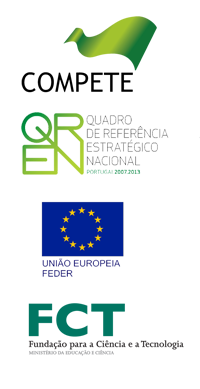According to the 2001 census, there are 636,059 disabled people in Portugal (6.1% of the overall population). Despite transformative laws and policies, the lives of disabled people are still marked by exclusion, poverty and prejudice. Within this group, disabled women are in a particularly vulnerable position, accumulating the inequalities based on disablism and sexism. In its Disability Action Plan 2006-2015, the Council of Europe recognised that “women and girls with disabilities can and often do face multiple obstacles to the participation in society due to twofold discrimination, namely on grounds of both gender and
disability”. This plan called for action to remove obstacles that prevent equality in the spheres of relationships, parenthood, family life, sexuality and protection from violence and abuse. The European Parliament has also issued a call stressing “how important it is for Member States to recognise the self-evident right of women with disabilities to their own sexuality and their right to start a family” (2007: 7). More recently, the UN Convention on the Rights of Persons with Disabilities (UNCRPD), the first human rights treaty of the 21st Century, re-affirmed this concern (article 23rd).
Drawing on such calls, and informed by the Social Model of Disability, we concur with the idea that women in general, and disabled women in particular, face daily legal, economic and socio-cultural challenges that hinder their ability to become ‘full intimate citizens’ (Roseneil, 2010).
Therefore, our main goal in this study is to explore the multiple ways in which disabled women relate to the spheres of sexuality (Strand 1) and reproduction (Strand 2), including opportunities, constraints, expectations and representations. We are interested in a range of issues within these two strands.
In Strand 1, Disabled women and sexuality, we want to consider sexually-related topics within the realm of coupledom (marriage, cohabitation or non-cohabiting relationships), but also experiences of sexuality as a single person, including the right to pleasure and to self-determination.
In Strand 2, Disabled women and reproduction, we wish to explore the intersection of disability and motherhood from a gendered perspective, considering not only biological motherhood, but also adoption, co-parenting and fostering. Under this strand, we will also be interested in experiences of surrogacy and assisted conception, the legal frame of which places Portugal in a particular position when compared to its European counterparts.
In addition, we will consider the role of professionals and family members in women’s decisions regarding sexuality and reproduction (Strand 3, Cultural representations).
The study will include four major phases and related tasks. In phase 1, the team will focus on gathering and exploring relevant publications in the fields of Gender Studies, Disability Studies and Feminist Disability Studies. Particular emphasis will be given to texts that offer an intersectional approach to disability, focusing on women. During this phase, the team will receive specific and detailed training in the Biographic Narrative Interpretive Method (BNIM), after which data collection instruments will be prepared. Phase 2 will consist of fieldwork, including biographic narrative interviews with self-identified disabled women, semi-structured interviews with family members and focus groups with professionals. After a preliminary analysis, we will organise regional seminars under the theme Beyond Academia: Feminist Disability Studies Mainstreaming. Phase 3 will include intensive documentary and interpretive analysis. In phase 4, we plan to focus on dissemination activities, including one international conference with our consultants and participant institutions. The project will also produce a document on good practices to promote feminist disability studies mainstreaming in law, social policy and civil society.



